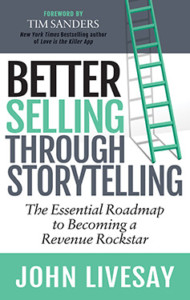State of Publishing
The State of Publishing
Thank you for taking the time to read this and for celebrating Morgan James Publishing’s 20th year of publishing with us. The last 20 years have been filled with challenges, opportunities, and successes made possible only by our authors, readers, our distributor (PGW/IPS), and Publishers Weekly. One thing that hasn’t changed was our commitment to you.
Morgan James was founded in 2003 to empower authors while also giving Morgan James more flexibility and speed to market. We sought to provide a personalized experience in a traditional publishing model but one that allowed the author to retain ownership and control over their intellectual property—making decisions together while looking at the big picture with the author. We also sought to maximize the credibility, distribution, and opportunity for the author, but stay out of their way. And we sought to assist authors in understanding best practices for reaching their goals—being flexible because we know that inflexible things often become brittle and break.
Another founding principle that has remained consistent over the past 20 years was our desire to create meaningful relationships on the distribution side of publishing. To that end, we committed to engaging the sales team and bookstore buyers early in the process to help everyone involved understand each other’s goals and needs. This has paid off tremendously.
In 2008 Publishers Weekly called us the first Hybrid Publisher to market and in 2020 an Unconventional Traditional Publisher, a moniker of which we are tremendously proud.
Morgan James continues to improve, evolve, and seek out new ways to serve the readers, the authors, and the distribution of our books.
Relationships
In the world of book publishing, the relationship between the author and the reader is crucial. However, another relationship is just as important: the one between the author and the publisher. When nurtured and maintained, this relationship can be the key to a successful and rewarding publishing experience for all involved.
When an author submits their manuscript to a publisher, they are not just looking for someone to print and distribute their book. They are also looking for a partner who will help them shape and refine their work and who will be their advocate in the marketplace. For this partnership to be successful, there needs to be a strong connection between the author and the publisher, built on trust, respect, and clear communication.
One of the key benefits of a strong connection between the author and the publisher is that it allows for a more collaborative approach to the publishing process. Instead of the publisher dictating the terms and editorial process, the author and publisher can work together to find a mutually beneficial path forward. This can lead to better books, as the author’s vision is able to shine through more clearly. It can also lead to more successful books, as the author and publisher are both invested in the success of the project.
Another benefit of a strong connection between the author and the publisher is that it can help to build the author’s brand and reputation. Publishers have a wealth of knowledge and resources when it comes to marketing and promoting books, and a publisher who is invested in an author’s success will work tirelessly to get their book into the hands of readers. This can lead to increased visibility for the author and a loyal readership who will be eager to read their next book, buy their courses, attend their conferences, or hire them for a keynote speech or consulting project.
Of course, the most important relationship in book publishing is the one between the author and the reader. Ultimately, the reader will decide the fate of a book and whether it becomes a bestseller, a consistent seller, or a forgotten title. However, the publisher can play a crucial role in helping build that relationship by creating an attractive, well-designed, and professionally produced book. The publisher can also help get the book into the hands of readers by distributing it through bookstores, online retailers, and other channels.
Moreover, these connections must be built on foundations of trust, respect, and transparency. The author needs to trust that the publisher has their best interests at heart and that they will work to create the best possible book. The publisher must respect the author’s vision and voice and communicate clearly and honestly throughout the process. And the reader needs to trust that the book they are reading is a quality product that has been created with care and attention.
Bureaucracy Beware
I am sharing this with you today to also bring attention to an issue that affects us all in publishing: bureaucracy. As book publishers, we know firsthand the challenges of navigating the publishing industry. We work tirelessly to create high-quality, meaningful content for our readers and value for our authors, but all too often, we find ourselves bogged down by red tape and endless bureaucracy.
But it doesn’t have to be this way. As a community of publishers, we have the power to effect change. By working together to streamline processes, simplify guidelines, and reduce bureaucracy, we can make the publishing industry more efficient, more accessible, and more enjoyable for everyone involved.
I urge you to join me in this effort to beware of bureaucracy in book publishing. Let’s work together to create a publishing industry that values creativity, innovation, and collaboration over bureaucracy and red tape. By doing so, we will not only make our jobs easier, but we will also create a better experience for our readers and authors, who deserve nothing less than our very best work.
Together, we can make a difference.
Times are changing
The book publishing industry has undergone significant changes in recent years due to the rise of digital technologies, the changing habits of readers regarding how and where they purchase their books, and other factors Here are some key trends and developments in the current state of book publishing:
E-books and digital reading: The popularity of eBooks continues to grow, and many readers prefer to read on their digital devices in addition to print. This has led to a rise in digital-only imprints, as well as new reading platforms and subscription services.
Hardcovers: The industry favorite hardcover is now taking a back seat to the more affordable paperback options. Now being fueled by major retailers who are pushing back on hardcovers unless the author has already demonstrated the ability to move tens of thousands of copies.
Print on demand: Advances in print-on-demand technology have made it easier and more cost-effective for publishers to produce and distribute print books in smaller quantities, reducing the need for large print runs and warehousing.
Audiobooks: Audiobooks have become increasingly popular, with more and more readers listening to books on their smartphones or other devices. This has led to a growth in audio-first imprints and publishers producing both print and audio editions of books.
Self-publishing: Self-publishing has become more accessible and affordable, allowing authors to bypass traditional publishing channels and reach readers directly. This has led to a rise in self-publishing platforms, including our very own affordable assisted self-publishing imprint, Persona Publishing.
Diversity, equity, and inclusion: The publishing industry has been under pressure to address issues of diversity, equity, and inclusion, with a growing demand for books that reflect the experiences of underrepresented groups. This has led to a much-needed and growing trend of more diverse voices being published and a focus on promoting inclusivity both in the books themselves and within the industry as a whole.
Consolidation: The publishing industry has seen significant consolidation in recent years, with a small number of large publishers dominating the market. This has led to concerns about the impact on competition, diversity, equity, and inclusion, author compensation, and the potential for censorship and editorial bias.
Overall, the current state of book publishing is one of ongoing transformation and adaptation as publishers, authors, and readers navigate the changing landscape of the digital age.
Speaking of Change
I’ve said it before; one can be sure of two things in the coming years: publishing will be a lot harder, and publishing will be a lot easier.
It will be harder because of five factors:
Time: Time will become magnified in importance. The luxury of spare time is a luxury of the past. Spare time will be revered, but not at work. You will notice that almost everyone will share the new awareness of time. Readers will demand and expect speed. You will too.
Contact: Less face-to-face contact will remove much of the social warmth of working. People now get more than half their messages through other forms of communication, such as voicemail, e-mail, and postings to social media sites. Such communications can be misunderstood or inaccurate; verbal accuracy will grow in value. The joy of social interaction will be diminished.
Change: Change will be thrust upon us, and much that we counted on before will no longer hold forth. Even things we learn will be true only for a short time before being surpassed by new truths. Genius will not consist of learning something but of learning one thing after another. If we can’t adapt, we aren’t cut out to be in publishing.
Talent: Talent will become diffused as top people trade the vitality of a huge corporation for the tranquility of working at home or otherwise more flexible employment. This is well and good for them, but for entrepreneurially minded authors, this means they will have to scout out the best minds in publishing, as the most experienced minds in publishing will no longer be found under one or two roofs. They will have to scout them out, just like publishers will need to scout out the best talent differently to grow their teams.
Technology: Technology will be more important in your life, and you’ll have to understand it to take full advantage of it. But technology is becoming easier to use, user manuals aren’t even written anymore, and the nature of training (repetition will be your friend for life) has improved. As my mentor, Jay Conrad Levinson once told me, “If you’re technophobic, see a techno-shrink.”
What Won’t Change
Human Nature: People will be people, with the usual strengths and weaknesses. They will be creatures of their emotions and still want to be treated fairly and kindly.
Wants, Needs, and Fears: People will continue to want and need love and security, money and power, a sense of identity, and a feeling of well-being. They will fear the same things they fear now: lack of control, illness, and absence of love and security.
Youth and Age: They’ll be just as they are now: Young people will still often be the first to try new things, and old people will still control most of the wealth. The generation gap will never close, but it will move. Every child will still grow up to be either like their parents or as a reaction to their parents.
Faith: Although people will differ in how they find faith, they will continue to seek it and continue to find it. Faith will continue to motivate the best that is within people. There will be a renaissance as people recognize their own inherent faith. It has already started.
Problems: Authors who can solve them will be sought-after members of society. Millions will still be trying to earn more money, lose weight, make friends, start new businesses, and break bad habits, whatever those habits may be.
Conclusion
In conclusion, the importance of connection in book publishing cannot be overstated. A strong relationship between the author and the publisher can lead to better books, more successful books, and a stronger brand for the author. And ultimately, the connection between the author, publisher, and reader is the foundation of any successful book. By building and nurturing these relationships, breaking down bureaucracy, and understanding the people we serve, we can create a publishing industry that is vibrant, exciting, and inclusive for all involved.
David L. Hancock, Founder
Morgan James Publihsing




